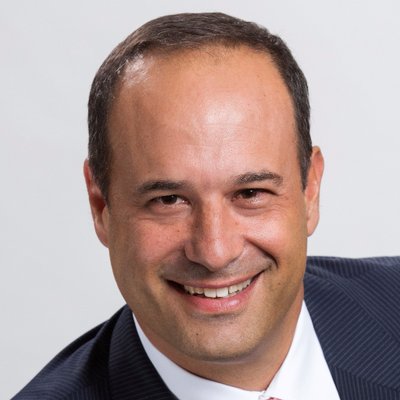Jason Sugarman Examines Reasons for the Interest of Big Brands in Esports
Since the 1990s, the internet has changed the way we look at the world and altered how we live our lives. One of the biggest changes we can see in the world is how we play sports and the interactions we have with major sporting events and brands. For example, social media platforms now give us an insight into the daily lives of our favorite sportspeople and celebrities with fans now seeing inside the lives of players in all sports and at all levels. The latest development in the world of sports is the esports phenomenon that is being led by the arrival of streaming services such as Twitch.
The arrival of big brands in esports has been on the cards for a number of years following the momentum that is building around digital sports games around the world. If we look at the FlyQuest team purchased by the owner of the Milwaukee Bucks NBA franchise and Aston Villa English Premier League team, Wes Edens. The arrival of sports owners who have a long history of finding success in traditional sporting environments was bound to push their usual big brand partners to seek out new opportunities to partner with teams. Edens FlyQuest recently announced they had partnered with Snickers to become the official chocolate supplier to the team.
Edens is not the only big name to make their way to the esports realm with fellow soccer team owners, Manchester City’s The City Group and Paris Saint Germain also establishing their own FIFA teams. The arrival of major teams and sports leagues in the esports realm has been on the cards for a long time and was undoubtedly going to lead to a surge in sponsorship deals for teas at all levels. Since the mid-1990s, soccer has been a big business with money flooding into the sport with the arrival of these clubs in the esports sector seeing the clubs looking for new ways of making money.
Individuals can become as popular as top sports stars
There are many different personalities in the world with some of the top Instagram celebrities being sports stars, such as soccer players such as Cristiano Ronaldo and Leo Messi. However, the shift in the way big brands are looking to advertise their products has led to the development of a new way of advertising products using video gaming and esports stars.
According to Jason Sugarman the top influencer in esports is now the “Frtnite” player, Typer “Ninja” Blevins who won the recent world cup of the game and took home a $3 million prize. Ninja had found success streaming his “Fortnite” playing online and was moving up the charts of various platforms before the game really took off and he was identified as a star by celebrities looking to play alongside him. The moment Ninja became a certified star can be viewed as the decision to play alongside the rapper Drake as the YouTube fans of the Canadian star pushed Ninja into a new era of stardom. Following the rise of Ninja, his appearance on the cover of “ESPN Magazine” changes the way the esports sector is seen across the world.
In the past, the role of the online influencer was limited to social media platforms where they would be paid for partnering with a major brand and advertising their products through their posts. A shift in the way the big brands look to social media influencers have taken place by their move into the esports sector where various products can be marketed and a brand’s reputation enhanced. Among younger people, traditional TV watching of sports and shows is no longer a major pastime, instead, TV is becoming the realm of the middle-aged and elderly.
As esports moves into the mainstream with more younger people knowing the handle of their favorite player than the actual name of a celebrity, the sponsorship deals being developed are also changing. The watershed moment for esports in mainstream marketing may have come with the arrival of Head & Shoulders as the main sponsor of the Russian gamer, Roman “Ramzees666” Kushnarez as the new face of the hair care product range in a first for esports marketing.
Big brand name companies are looking to change the way the world of esports is enjoyed and to embrace the different cultural aspects of gaming among a tough to reach demographics within society. Millennials are more likely to cut the cord and remove their traditional TV service that has dominated marketing since the middle of the 20th-century. Take an example of the Super Bowl which has built into an event as famous for the adverts on the show as it is for the success of the NFL teams reaching the big game. A 30-second ad during half-time is said to be worth around $50 million with brands building an entire campaign season around the world.
The growth of the esports world is expected to grow across the world with streaming views expected to rise from just five percent of YouTube videos in 2018 to over 40 percent by 2021. Like any other business, esports needs funding to develop in the coming years with a high level of investment expected from some of the world’s biggest brands. Although the development of esports around the world has included the growth of a range of options from linkups with movies to uniform color changes to suit the needs of advertisers, sports players are more aware of the needs fo advertisers.
The evolution of major sports, such as soccer and basketball came over a prolonged period of time taking more than a century to achieve sustained business success. Many of the stars of esports look to the business work of athletes such as Michael Jordan, Shaquille O’Neal and David Beckham as opening doors into advertising with major brands. In the 1980s, many star soccer players were limited to advertising with local brands close to where they played their sport. Just a decade later, David Beckham had launched his global brand with marketing partnerships with some of the biggest brands on the planet.
Understanding the marketing needs fo major brands has allowed members of Germany’s Unicorns of Love team to promote the “Deadpool 2” movie and record lines for the dubbed version of the movie in German. Other teams have announced their jersey colors will change to suit the needs of sponsors in a similar way to the branding of Formula One cars competing in Grand Prix races. As the fanbase of esports teams continues to rise, the needs of marketers will become even more important to players and teams looking to build a brand that lasts across many decades.





